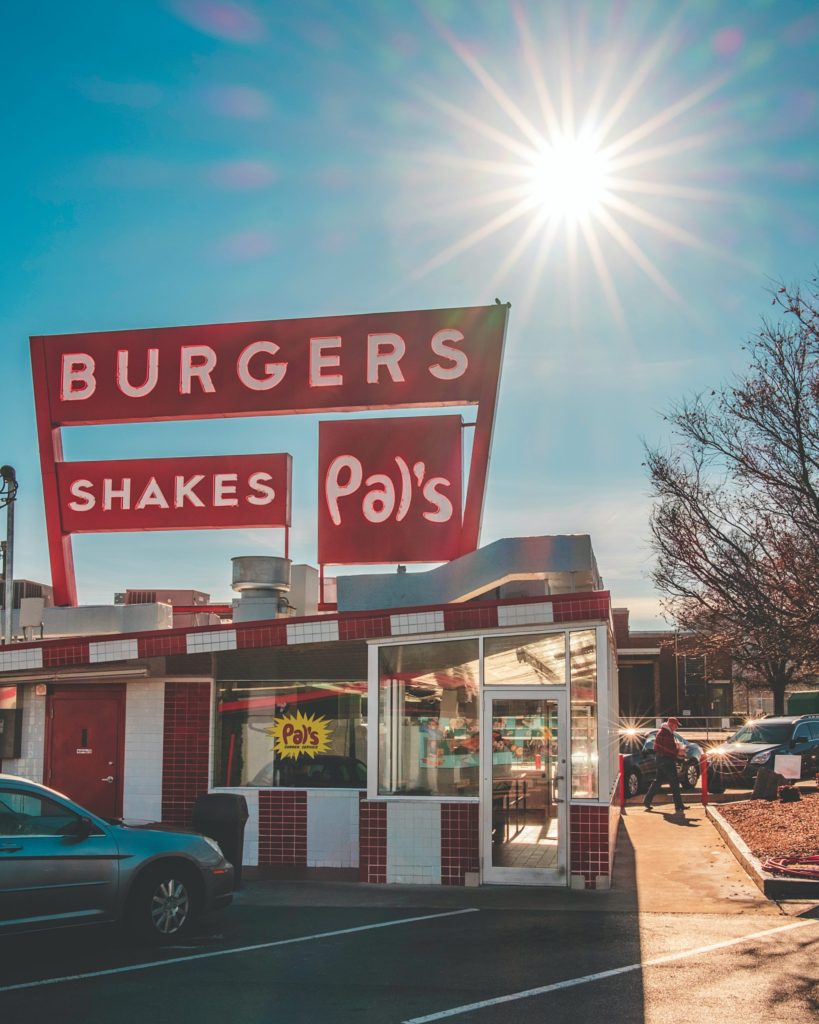As a Franchisor, your income is not derived from the operation of a restaurant. The Franchisor’s primary revenue source is a royalty payment made by the franchisee to the parent company. Also, this royalty is paid on top-line sales, not bottom-line profit. As a Franchisor, your role is to help franchisees increase their sales and increase the number of operating units

Suppose you have a proven restaurant concept with a successful business system. Think McDonald’s, Panera Bread, Applebee’s, or Halal Guys. In that case, your next move may be to open additional locations. Franchising your restaurant and awarding others’ the rights to use your brand name, recipes, and procedures is a great way to expand. Why do restaurant owners choose to franchise their business? For the most part, it comes down to capital, time, people, and geography.
Lower Investment To Grow Your Brand
You can add additional restaurants while at the same time, you minimize your capital investment. Becoming a Franchisor and using franchising as the method to grow means other individuals (franchisees) will pay a franchise fee to gain access to your brand. Also, the franchisee will fund building the restaurant and assume the location’s financial responsibility. According to Harold Kestenbaum, a Partner with Spadea Lignana Franchise Attorneys: “Building out company units can get very expensive. Having a franchisee invest their own funds not only saves the franchisor money but allows the franchisee to have skin in the game. This is crucial for the success of a franchise system.”
Exponential Growth
Building corporate restaurants is limited to your capital, human resources, and, in many cases, geography. However, when you franchise, your brand may be growing more rapidly and in multiple markets. Once ramped up, some franchisors open as many as 20, 50, or more than 100 new restaurants a year. Michael Einbinder, founding Partner of Einbinder & Dunn, states: “Franchising restaurant concepts allows for fast growth. If you expand your brand through franchising, the investment in new outlets come from franchisees. Critically, franchising gives you an opportunity to grow in multiple markets simultaneously.”
Owners vs. Employees
In many cases, the most challenging aspect of running a restaurant is; recruiting, training, and maintaining good employees. As the Franchisor, that effort rests with the franchise owner of the individual location. Unlike owning and operating corporate locations, it’s the franchisees that have “skin in the game,” and unlike employees, they usually do a better job. Also, they can’t just quit at will because they have a vested interest in the business, usually in the form of personal cash and loan commitments. Franchisor, Charles Watson, CEO of Tropical Smoothie Cafe says: “Having franchisees who are aligned with your mission and willing to invest in their own success are critical for quality growth. You may not always have the same level of commitment from employees because their work does not impact their bottom line. Dedicated franchisees are often eager to execute the new initiatives that the franchisor rolls out systemwide to their local markets, which inevitably inspires guests to keep coming back to your concept, no matter what location is nearby. The franchisee/franchisor relationship is always evolving and is typically mutually beneficial.”
Residual, Royalty-Driven Income
As a Franchisor, your income is not derived from the operation of a restaurant. The Franchisor’s primary revenue source is a royalty payment made by the franchisee to the parent company. Also, this royalty is paid on top-line sales, not bottom-line profit. As a Franchisor, your role is to help franchisees increase their sales and increase the number of operating units. When done correctly, the Franchisor benefits, and the franchisee’s chances of higher profit through better operations and broader brand recognition are increased. The general public loves and trusts “Name Brands” and can sometimes be skeptical of the one-off mom & pop operations.
Better Selling Price At Exit
Suppose you’ve built your franchise company with reliable franchisees, a tight operating model, and strict enforcement of brand standards. In that case, the chance is a potential buyer will pay a higher price based on a multiple on your profits. All too often, non-franchised restaurant owners sell their corporate-owned restaurant chain at a price based on two or three times multiple of their bottom line profit. However, many investors, particularly private equity firms, are attracted to franchise companies whose revenue is driven by royalties.
According to Michael Einbinder: “Many franchisors build their concepts with the ultimate goal of creating value in the long term for an exit. In the last several years as private equity firms have become more involved in franchising, the trend has been that the multiples paid on franchisor EBITDA are higher than on company operations.”
Investment firms are often willing to buy based on a multiple double and sometimes triple that of an independent restaurant chain. Why? Because unlike profit earned by restaurant operations, royalty driven profit is virtually endlessly scalable. Franchisors usually have a lower operating cost with less overall risk compared to corporate-owned chain restaurant companies.
Closing Thought
Although each owner has their own reasons to franchise a business, these are the key motivators why restaurant owners franchise their concept. However, franchise companies are not without unique challenges. There are numerous other considerations, such as the cost to set up and maintain legal compliance, marketing & the cost of recruiting new franchisees, franchisee relations, and developing a unique skill set as a Franchisor. We’ll cover that other side of franchising in another article.
LEARN ABOUT FRANCHISING YOUR BUSINESS, check out our website: www.franchisegrowthsolutions.com
ABOUT THE AUTHOR:
Gary Occhiogrosso is the Founder of Franchise Growth Solutions, which is a co-operative based franchise development and sales firm. Their “Coach, Mentor & Grow Program” focuses on helping Franchisors with their franchise development, strategic planning, advertising, selling franchises and guiding franchisors in raising growth capital. Gary started his career in franchising as a franchisee of Dunkin Donuts before launching the Ranch *1 Franchise program with its founders. He is the former President of TRUFOODS, LLC a multi brand franchisor and former COO of Desert Moon Fresh Mexican Grille. He advises several emerging and growth brands in the franchise industry. Gary was selected as “Top 25 Fast Casual Restaurant Executive in the USA” by Fast Casual Magazine and named “Top 50 CXO’s” by SmartCEO Magazine. In addition Gary is an adjunct instructor at New York University on the topics of Restaurant Concept & Business Development as well Entrepreneurship. He has published numerous articles on the topics of Franchising, Entrepreneurship, Sales and Marketing. He was also the host of the “Small Business & Franchise Show” broadcast in New York City and the founder of FranchiseMoneyMaker.com Read Less


